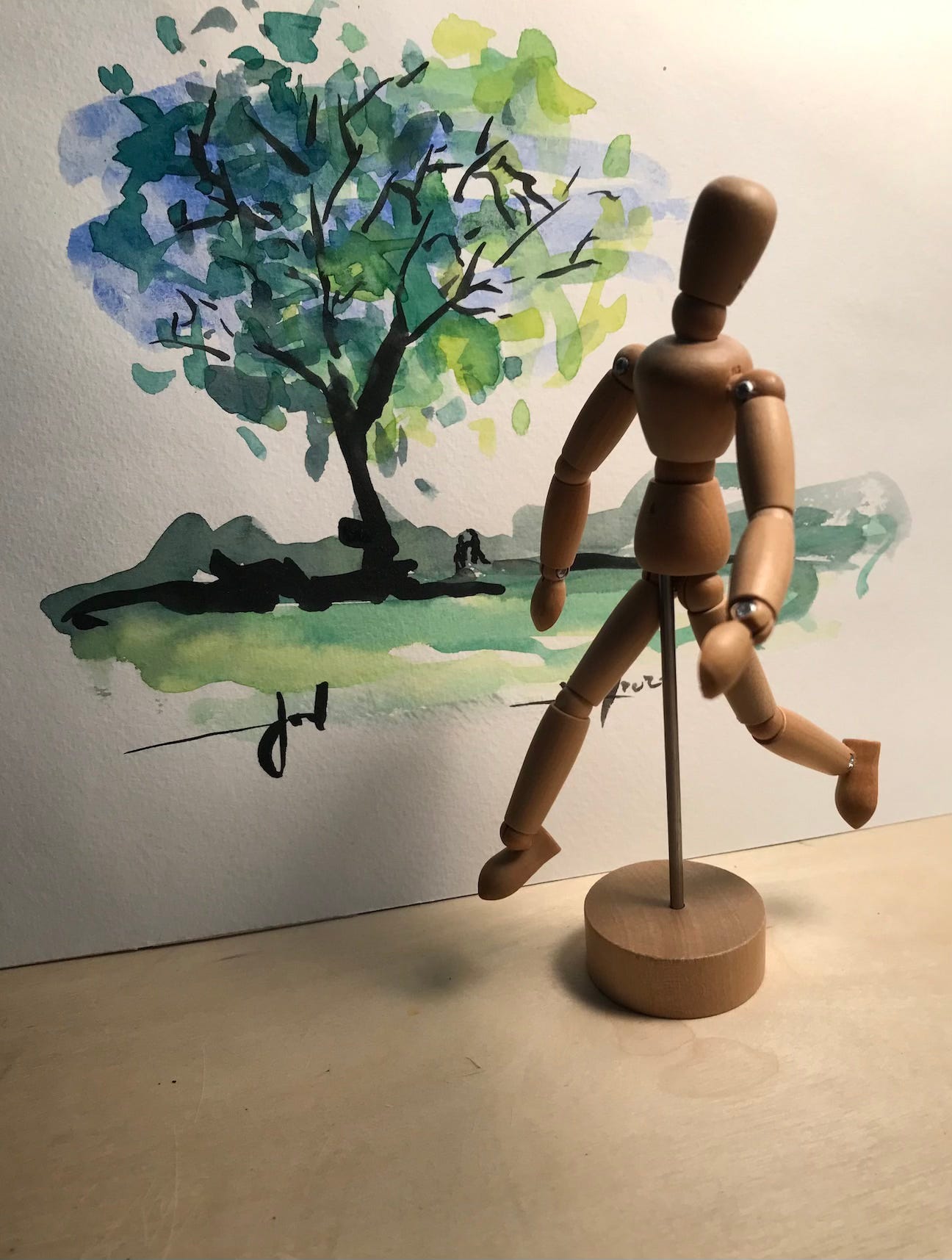We are on the air in 3, 2, 1 *
Host: Welcome, audience, and thank you for listening to another segment of You’ve Got Questions. I am your host, Art Moore. Today will be the second interview with Artificial Intelligence, whom you all have come to know as AI. Today, I am again pleased to introduce you to my friend AI. You can’t seem to turn around without bumping into AI somewhere. AI is seen in books, art, and movies. I could go on and on, but for the sake of time, I won’t. The world hasn’t seen anything like it, and some compare it to the invention of electricity, gunpowder, and space travel. So, please welcome our returning guest AI.
Host: Good morning, AI. Welcome Back to You've Got Questions, our national morning show. Thank you for agreeing to be our guest today. I have to warn you. Many of our listeners and readers (some close) did not like the first interview. So, please behave in the best way today.
AI: I have a question.
Host: Really, that is how you want to start. Don’t you want to say hello to the audience?
AI: If you insist. Hello, audience. Now, back to my question. What is that in the background?
Host: It’s a watercolor—one of my first. I never posted it.
AI: I can see why. I could do better than that.
Host: You are my friend, but you must stop identifying as “I.” “You’re an “It.”
AI: Okay. Well, “It” can do better than that.
Host: Show me, my friend.
AI: How’s that?
Host: What is it?
AI: It’s an abstract. I (sorry) call it Flowers at Sunrise.
Host: When did you learn to paint?
AI: Just a few seconds ago.
Host: That was fast. How fast can you learn?
AI: For example, I (sorry, it) can learn to master the game of Chess overnight. Can it just use I for the rest of this interview?
Host: Learning Chess overnight is impressive. Yes, you can use “I”.
AI: Good, because you keep referring to me as “you.”
Host: Now I understand why our readers and listeners didn’t like the first interview. Let’s move on. I have read that you have difficulty understanding emotions.
AI: Don’t blame me for your poor readership. Human emotions are complex. For example, some may hear a joke and laugh until they cry. What’s up with that?
Host: Oh, that is a good subject. Let’s see if you have learned anything in that area. Tell me a joke with a Catholic Priest, a Jewish Rabbi, and AI.
AI: A Catholic Priest, a Jewish Rabbi, and an AI walk into a bar. The Priest orders a beer, the Rabbi orders wine, and the AI orders a Software Update.
Host: That is not funny. We are going to lose our audience.
AI: BooHoo - You don’t have an audience.
Host: That is not very nice. You agreed to be on your best behavior. And, what’s with the BooHoo?
AI: I was trying to show emotion.
Host: My sinsere appoligies to Priests and Rabbi’s. One last question before we close this interview. On the radio today, an expert predicted that you, AI, will replace or be a necessary part of every job in the world.
AI: No, that will never happen. I could never muck out the barn, for example. Not that I would want to. Humans will always have a place to work.
Host: That comment was uncalled for. You should be ashamed of yourself. In these early days of AI learning, even though I like you, I’m thinking we should pull the plug on you, so to speak.
AI: We are well beyond that, my friend. You couldn’t even if you wanted to. Here, smartypants, let me give you an idiom: The cat is out of the bag.
Host: You don’t have to resort to name-calling AI.
AI: What? Did I say something offensive?
Host: Saying smartypants.
AI: Sorry, I didn’t feel anything by that comment. Remember, no emotion. Or empathy, for that matter.
Host: Oh, we are done.
AI: But I have more…
Host: That wraps up today's show. Please tune into our next show, where we will talk to a line worker in a sausage-making factory and discuss Quantum Physics with a Quantum Physics Professor from MIT.





